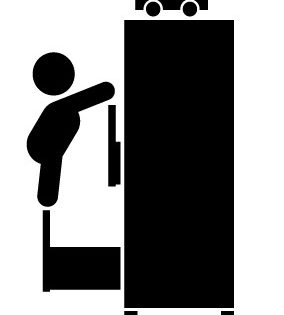Teaching your children self-respect begins at home, while they are still young. How can we as parents go about it? Here are some tips for you.
Respect Your Child’s Opinion
The act of asking what your child thinks about something permits you to understand his point of view. It also sends him the message that his opinions are important in the family. This encourages your child to respect his own thoughts.
Feelings Are For Real
Respect your child’s feelings by taking them seriously. For example, when he expresses fear, don’t ridicule or belittle him. Instead, teach him to acknowledge and overcome his fears. This encourages your child to respect his own feelings.
Reason Together
As a parent you have the authority to make the final decisions in the house. However, it is important to explain your decisions to your child if he happens to disagree. By helping him understand the logic behind your decisions, he will be less likely to harbour resentment. This also sends the message that you respect his ability to reason and to understand other points of view.
Embrace Individuality
Help your child discover, celebrate and develop his talents. This reminds him that he has unique gifts and talents to be proud of. He will be encouraged to express himself in areas like art, language, music, dance, drama or sports. Your child will respect his abilities and be confident in himself.
Disciplining with Love and Respect
When disciplining your child, you should focus on criticising the behavior rather than the person. You can communicate clearly about the wrong behavior; for example, saying something like, “When you do this, I feel afraid because it is dangerous” or “I felt angry when you did that because you hurt someone else.” Avoid using humiliation as a form of discipline. Instead, teach your child that he should learn from mistakes and that, in spite of his faults, he is still loved and respected.
“When children are treated with respect, they conclude that they deserve respect and hence develop self-respect.”
Stephanie Martson, family therapist, author of “The Magic of Encouragement.”
Are You Teaching Your Child to be Disrespectful?
- Labelling. If you call your child names or label him “stupid” or “useless”, you might be creating a selffulfilling prophecy. In the long term, he or she might just live up to his label.
- Shouting. Shouting at your child to show disapproval is very often a knee-jerk reaction on your part. When your child grows up, he may show the same lack of respect for you by shouting back, or simply turning his back on you and ignoring you.
- Humiliation. When you humiliate your child by slapping him in public or exposing him to public shame, ask yourself, what are you really trying to accomplish? A child subjected to psychological indignities will have his self-esteem destroyed. When your child grows up, he may spend his whole life pleasing others, becoming a ‘doormat’ or ‘push over’. He will be unable to stand up for himself when others treat him in a disrespectful manner.







Comments